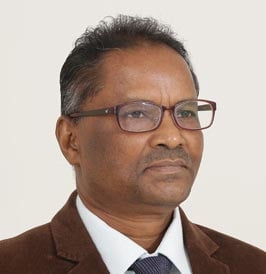An Introduction about Cancer and its Treatment
June 8, 2020

What is Cancer?
Some of our body’s cells grow without control, to form masses and spread to nearby structures.Normally, our body has mechanisms to kill a diseased cell.When these normal mechanisms fail, cells grow uncontrollably.One cell becomes two cells and then divide to 4,8,16,32 cells and so on to form several billions of cells, to form a mass called cancer.
Cancer has the tendency to spread to the surrounding structures and also to the distant organs.
When the cancer size is small and stays in one organ, it is called early cancer.When it has spread to the distant organ, it is called advanced or metastatic cancer.
Symptoms are dependent on the site of cancer.Breast cancer can present as apainless lump in the breast.Cervical cancer presents asabnormal vaginal bleeding, vaginal discharge or lower abdomen(pelvis)pain.Oral cancer presents as growth or ulcer in the mouth with pain.
Sometimes there are no symptoms, rarely it is diagnosed on master health check-up.

How to diagnose Cancer?
Cancer diagnosis is based on patient symptoms, clinical examination, blood test(basic blood tests and tumour markers) and Biopsy.
Biopsy may be done by endoscopy of stomach or large bowel in gastro intestinal cancers.In breast cancer core needle biopsy of the breast lump is done.Biopsy material is studied under the microscopeand this study called histopathology to confirm diagnosis of cancer.
Whole-body PET CT / CT scan / MRI scangives the information whether the cancer has spread to other organs or not.
What are the treatment options for cancer:
The treatment of cancer is not done by one specialist but comprises of a team of doctors called ‘Tumour’Board’. The tumours board comprises of a Surgical Oncologist, Medical Oncologist, Radiation Oncologist, Palliative care specialist, Pathologist and Radiologist.
Surgery
Based on the location and stage of the disease, if surgery if possible,it is the primary treatment. The aim of surgery is to remove cancer completely with adequate margins.Cancer surgery is done by cancer surgeons called surgical oncologist.

Following surgery we assess based on size of the tumour and biopsy studies and immuno- histochemistry whether cancer has tendency to come back(recur).When the recurrence possibility is significant we consider chemotherapy and radiotherapy.
Chemotherapy
Chemotherapy is chemical treatment given through an intravenous drip.Chemotherapy works through blocking cell growth.Some chemotherapies are given at a specific interval.i.e.once in every 1,2 or3 weeks.Common side effects of chemotherapy are nausea,vomiting,tiredness,infection and hairloss.Most of the symptoms are temporary and manageable.

Targeted agents
Targeted cancer drugs are like missiles which specifically attacks certain proteins,hormones or genes. For example, in chronic myeloid leukaemia there is a bcr-abl gene which causes the leukaemia.Imatinibis a drug which acts on the bcr-abl gene and treats chronic myeloid leukaemia.

Radiation therapy

Radiotherapy delivers high energy particles to causesmall breaks in the cancer DNA(deoxy ribonucleic acid) structure thereby killing the cancer cells.It is useful in both early and advanced cancers. In several cancers like cervical cancer, throat cancer etc. it is the single main modality. In some cancers like Breast cancer, Mouth cancer, endometrial cancer etc., it is used after surgery to prevent a recurrence. In some cancers like Esophageal cancer, rectal cancer etc., it is used before surgery to reduce the size of cancer and make it easily operable. In advanced cancers it controls symptoms such as pain,bleeding, fits etc.
With the modernradiotherapy machines like Truebeamit only takes few minutes to give radiotherapy. It is given daily for 4 to 5 weeks in early cancers and for1 to 2weeks in advanced cancers.
Palliative medicine
Palliative medicine is a specialised medical care in serious illnesses like Cancer.In end stage cancer, good symptom control and improving patient quality of life are the aims of palliative care.Our terminal cancer patients are comfortable and in peace till the end.
We use sub cutaneous infusion of morphine in selected patients to achieve good pain management without affecting conscious level.
Rela Hospitalis a 450 bedded multi-speciality hospital with a dedicated oncology team. The facility has the ability to manage cancers of any and every type.
Services offered:
- Surgical oncology
- Medical oncology
- Radiation oncology
- Palliative medicine
Cancer diagnostic services:
Diagnosticfacilitites like haematology,biochemistry and histopathology lab are available with up to date facilities. Radiology services like CTscan, MRI and PET-CT scan. Cancer counselling to patient and family.Cancer nutrition and dietician services.Cancer physiotherapy.Molecular biology,Cancer genomics(assessing which drugs will be effective in a particular cancer).
Why choose Rela Hospital for Cancer care?
Excellent International standards for cancer care
Well experienced oncology team
We provide hope
We treat patients with empathy
We have tumour board which includes all oncology specialists,pathologist and radiologist to decide patient treatment.
Our treatment is both scientific and wisdom based treatment.








